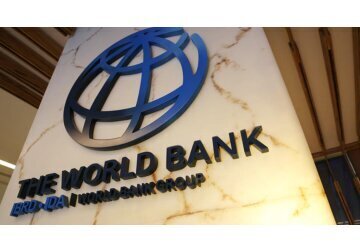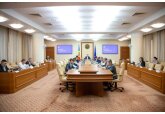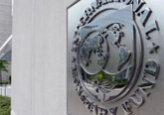
The World Bank will provide 98 million euros in loans to co-finance the Rural Connectivity Project in Moldova.
This is provided for by the relevant loan agreements with the International Bank for Reconstruction and Development and the International Development Association, members of the World Bank group, the ratification of which was approved by the Government of Moldova. The documents were signed on June 19 and provide that the International Bank for Reconstruction and Development will allocate a loan of 92.4 million euros to Moldova for the implementation of the above-mentioned project, and the International Development Association - 5.6 million euros. These funds will be used to implement the Rural Connectivity Project in Moldova and will be used to develop climate-resilient road connections in rural communities, expand road transit through border crossings with Romania and respond quickly and, if necessary, more effectively to crises and emergencies. The project will restore local roads and ensure road safety near schools and villages, as well as organize infrastructure for non-motorized transport that travels along and near the roads. In addition to the construction work, road safety education and information campaigns will be conducted to raise awareness and educate the public about road safety measures and practices. The second component of the project is to improve the functionality of checkpoints on the border between Moldova and Romania. A new border checkpoint will be built in Ungheni with modern equipment for customs processing, weighing and scanning. It is also planned to modernize the checkpoints in Giurgiulesti and Leuseni. The other two components of the project are provision of effective intervention in case of emergencies and administrative support for project implementation. The total cost of the project is $190.55 million, of which 65% ($105.98 million) is a WB loan, 10.8% ($22.55 million) is a CEF grant, and 33.6% ($64.02) is a government contribution Moldova (funds will be allocated from the state budget through the Road Fund). All work envisaged by the project will be carried out on the basis of feasibility studies. It was previously reported that the Rural Connectivity Project in Moldova provides for the rehabilitation of more than 120 km of roads, as well as the modernization and improvement of security and checkpoints of Moldova on the border with Romania. As noted by the Minister of Infrastructure and Regional Development Andrei Spinu, in particular, repairs are planned in 3 sections: Corridor 5, R13 - Ivanovca-Izvoare-Varnita-Ocolina-M2 with a length of 35 km; Corridor 8.1 and Corridor 8.2 - Cornesti-Boghenii Noi-Napadeni-M5 (G88) with a length of 33 km; Corridor 24 - R34-Ciobalaccia-Tartaul-R56-Baimaclia-Enichioi-R37 with a length of 43 km. The project will also improve the transport infrastructure adjacent to local roads, it is planned to modernize the customs posts in Leuseni and Giurgiulesti, as well as set up a border checkpoint in Ungheni. Road conditions will be improved, driver costs will be reduced and waiting times at checkpoints will be reduced. Overall, the project aims to provide economic opportunities to local communities; trade facilitation and expansion of solidarity corridors; strengthening sustainability, capacity and project management support. It is expected that the direct beneficiaries of the project will be about 42 thousand people, more than 130 enterprises, 27 medical institutions and 84 schools located along the restored roads. The project will facilitate the shipment of 350 thousand to 400 thousand heavy cargo per year. These benefits will be taken advantage of by carriers from Moldova, Ukraine and Romania, whose goods are imported, exported or transit through Moldova through border crossing points open to road traffic. Economic benefits will include reduced waiting times for trucks and cars, increased trade and reduced emissions of polluting gases. Since 1992, when Moldova joined the World Bank, more than $2.1 billion has been allocated to more than 70 operations in the country. The WB portfolio currently includes 13 active projects totaling $742.9 million. Areas of support include regulatory reforms and business development, modernization of public services, tax administration, land registration, education, roads, health and social sector (including emergency response to COVID -19), agriculture, water supply and sanitation, and the energy sector. // 08.07.2024 – InfoMarket.







